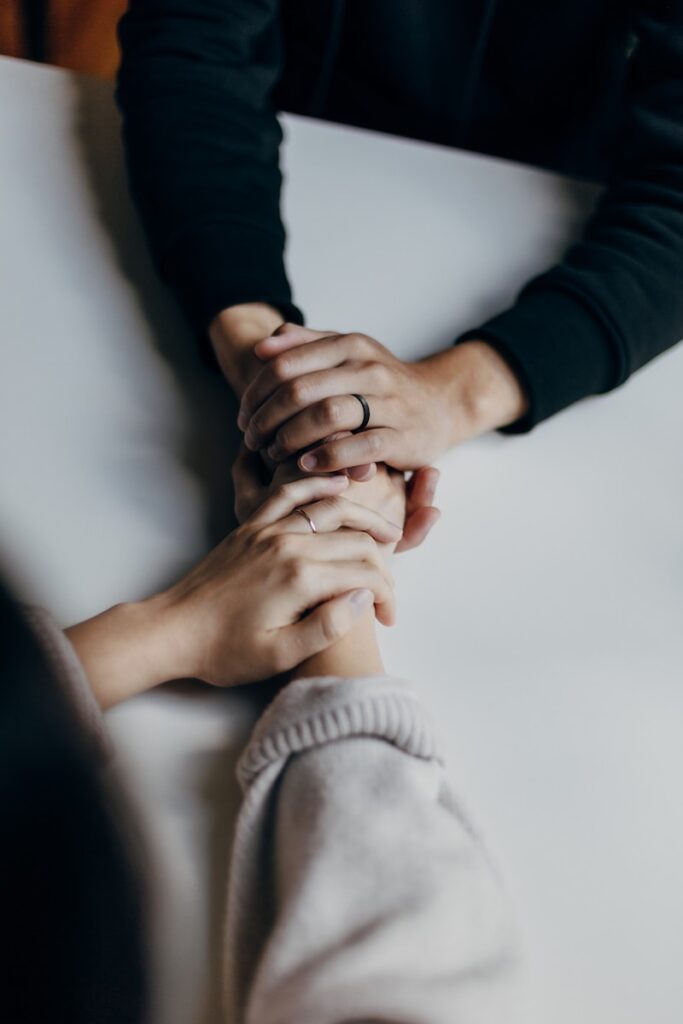
In 1997 I decided to retire from my twenty-five-year health care career.
A short career review:
I had had a great run, beginning my career at St. Joseph’s Hospital in Hamilton, Ontario and concluding it at St. Mary’s Hospital in Montreal. During the 25 years I had many jobs and the opportunity to work in acute care, rehabilitation, long term care and home care. Yes, I covered all the options health care had to offer me. As I graduated from McGill University with a Bachelor of Physical Therapy, I decided a few years later to complete my BSc in Physical Therapy, an essential step for continuing my studies. Jim and I moved around the country living in Hamilton, St. Catherines, Edmonton and Montreal. Once back in Montreal I returned to McGill and completed my Masters Degree in Educational Psychology. In my final position at St. Mary’s, I hit the jackpot when I was appointed as the Head of the Education Department. Here I was able to stretch my wings and work in my true passion, Adult Learning. As the opportunities for me in health care narrowed, and with an inducement from the Quebec government (an offer I couldn’t refuse), I made the decision to leave health care and open our consulting company.
Enough career history and back to the theme, caregiving. While working in health care it became evident that health care workers may be the least attentive people I know to their own health and care. Health care workers are a unique breed. We, at least in my generation, went into health care not simply as a career, but as a calling. Nothing wrong with that except that somewhere along the way we were not taught to also take care of the person delivering care.
Fast forward, years of downsizing health care, so many changes including an enormous shift from in-patient to out-patient care (not necessarily a bad thing), numerous wage challenges with provincial governments and finally the straw that broke the back of that camel, COVID.
Twenty-six years ago, care-givers were experiencing the stress of the job; imagine how that has amplified since.
As I walked away from my health care career, I did not walk away from health care. My first mission was to understand how to develop strategies to facilitate care for the care-giver. That meant learning new strategies for myself as well as understanding how to bring these ideas to my colleagues, friends, and soon to be clients. In 1998 I polled my female friends and colleagues and invited five of them to join me in a program I had conceived, a three-day retreat called Care for the Caregiver. All five had came from health-care, three nurses, two social workers, people whom I trusted and trusted me. Over the following three days, we played together, I tested my ideas with them, they dissected my plans, and together we created what became the bedrock of my future work.
An interesting take away was their advice that the program we were creating would benefit more than care-givers, suggesting that a broader audience which included anyone in a demanding career, such as educators, community service agencies and more, would benefit. And now, with many of us reaching an age where we have either parents or partners requiring our care and attention, the audience has widened yet again. On the advice on my advisors, Care for the Care-giver became ‘Authentically You’, which evolved into ME FIRST. Regardless the principles remain the same.
Care for the Caregiver Strategies:
- The Heart’s Message:
Fact: The heart pumps blood to your body through a network of arteries and veins. It pumps the blood returning from your legs, arms and other body parts to the lungs to be re-oxygenated. The heart then takes this newly oxygenated blood and sends it back out providing all the essential nutrients to your muscles, bones and tissue. But here is the thing, the first organ the heart feeds is itself. The very first artery which leaves the heart branches off the aorta, the large artery that serves as the super highway for delivery, and goes directly to the heart muscle. The Heart’s Message: The heart knows that to stay strong for the rest of the body, it must feed itself first. - Selfness:
Most women and some men are encultured to believe that to care for oneself is a selfish act. I have heard this over and over again and honestly, I am not immune either. So how can we re-frame this in a new way. I suggest the concept of selfness. By definition selfness means to care for yourself first so as to leverage your ability to care for others. You know as I do, that to sacrifice your well-being, even in the short term, to take care of someone else’s needs, will have consequences. This does not mean withdrawing from your care giving roles. This is not possible. It simple means finding a balance, which leads to the next strategy. - The 1% Rule:
I have learned through the years that you cannot simply tell others “You need to take time for yourself”. When people are overwhelmed by their responsibilities this suggestion becomes simply one more item on the to do list. Instead, I suggest that you dedicate 1% of your day to you. Mathematically 1% represents 14.4 minutes; you can raise the bar and go for 15 minutes. When you ask yourself, can I give myself 15 minutes a day for self-care, that seems doable. The important thing is this is best offered to yourself as 15 minutes of uninterrupted quiet: a meditation, a warm bath, a quiet walk, relaxing music, whatever sooths your spirit and gives you a momentary reprieve from responsibility. When you are ready, you can increase the time frame. - Space Management
You have been told to manage your time, probably more times than you can count. But, do you manage your space? I know, you are thinking what does that mean? means understanding your boundaries, exploring what is really important to you and what you want to fill your space with and also understanding what takes up space that no longer serves you and you want to discard. In other word, know your YESES and your NO’s. Two bits of advice here. First, NO is a complete sentence and requires no additional explanation. Second, practice this, “I am not saying NO to you, I am saying YES to me”. Your space is precious and I encourage you to be clear about what you want in your space and not allow this to be managed by others. - Self-Compassion
The emerging research regarding self-compassion suggests that this is the key to emotional health, resilience and well being, certainly the key components when you are in a care-giving role. What does it mean? At its core self-compassion is self-kindness, treating yourself as you would your best friend. Self-compassion begins by re-programming your self-critic (we all have one!). When you hear the critic step in, berating you for something, ask yourself “how does this serve me? Why would I choose to treat myself so poorly when I am doing the best that I can? What would I rather hear?” Re-write the message to one that acknowledges you, expresses the truth and lifts you up.
Final Thoughts
Learning to practice self-care is a lifelong journey for many of us. Simply consider this, you are precious, you are a gift, and you need to protect these gifts. When you invest in self-care, even 15 minutes each day, you are adding to your longevity and resilience.
Finally, I dedicate this column to my dear friend Caroline whose husband Arnold, passed away Sept. 20th after a long journey with Parkinson’s and Melanoma. As a long-time care-giver, she had to learn self-care was the only way she could be fully present to her husband’s needs. She learned to lean on others and engage all the resources she could to support their journey.
Until next time,
Betty Healey













